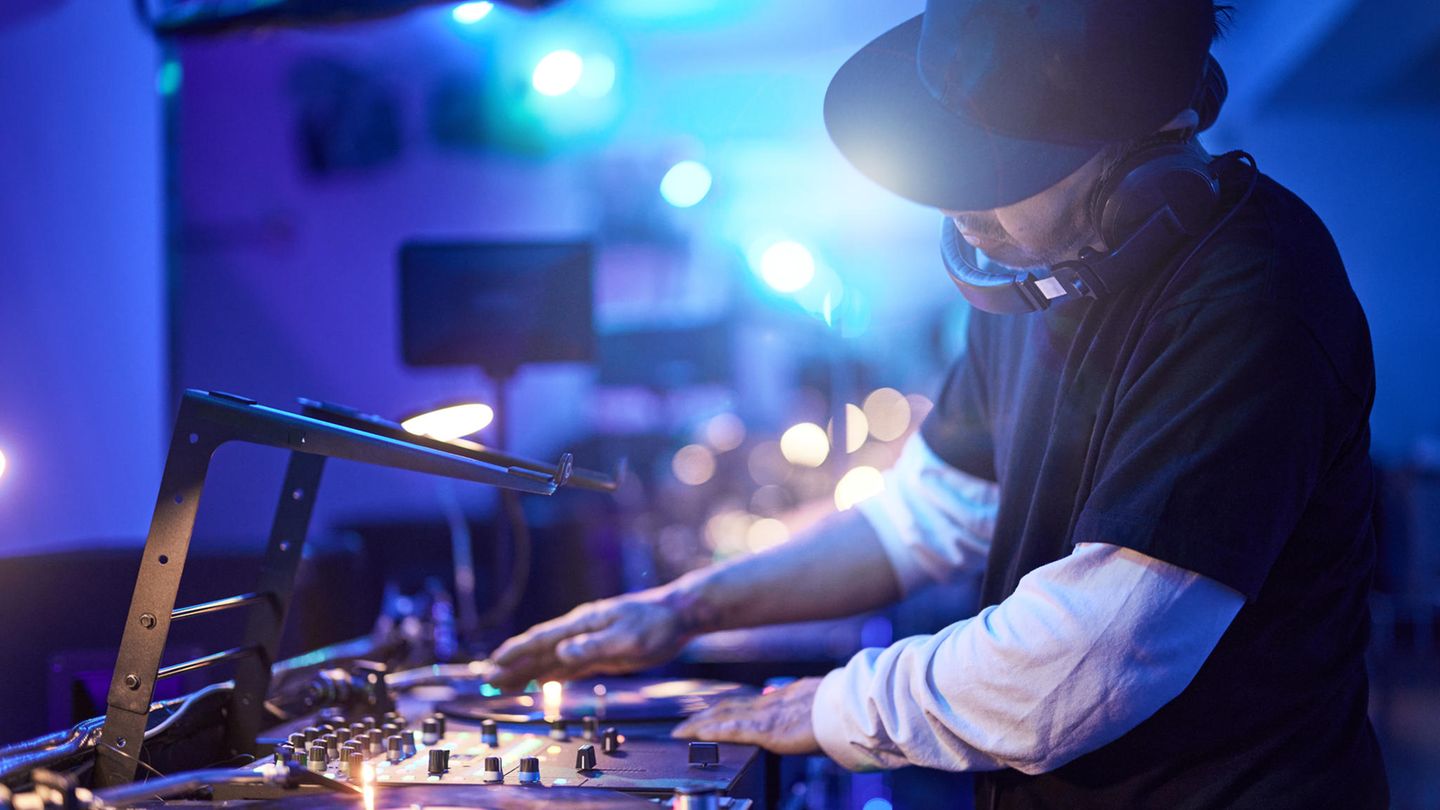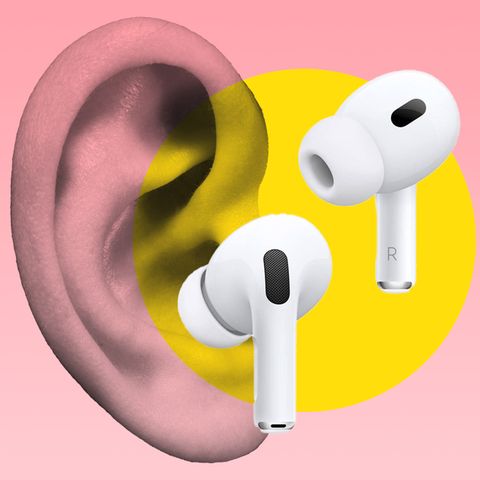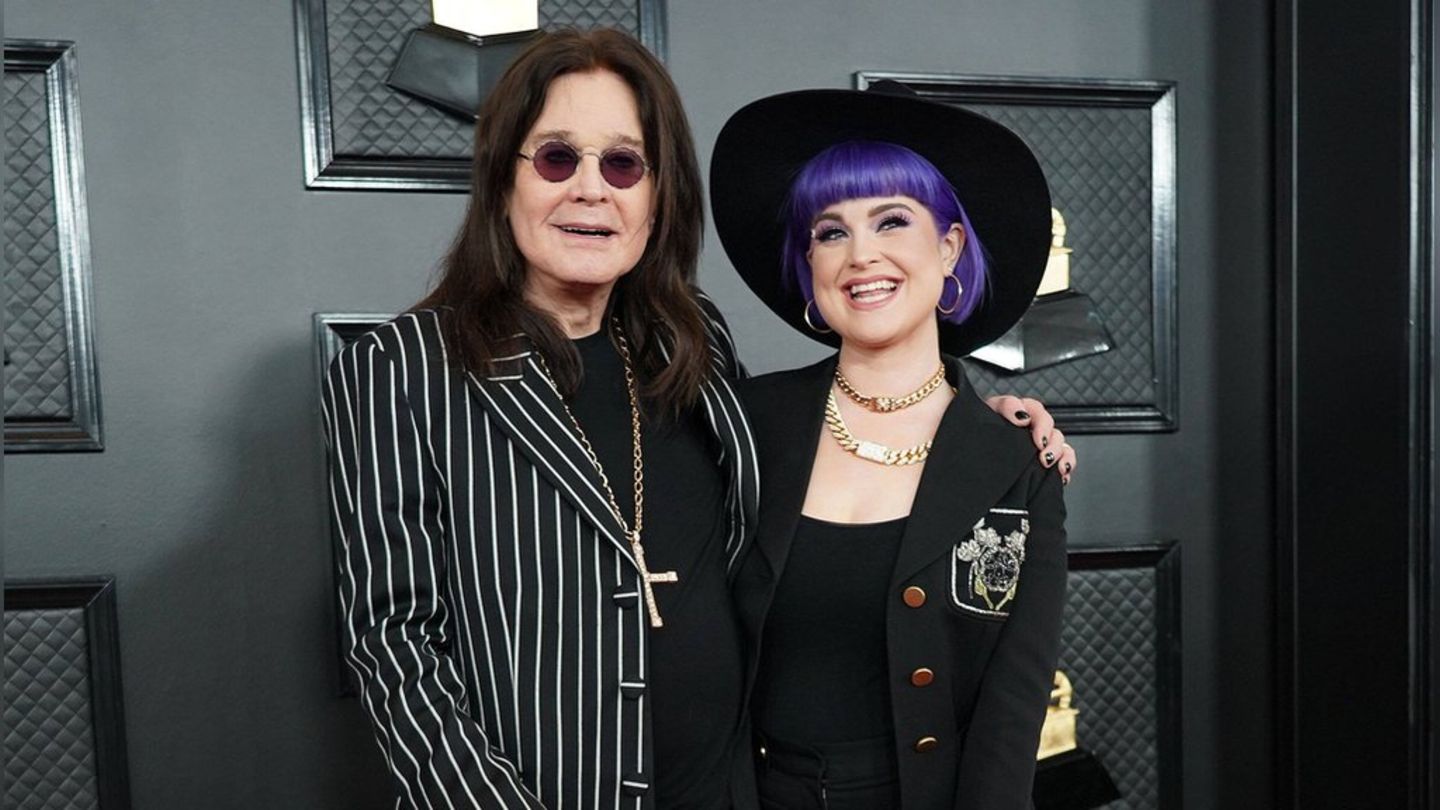hearing loss
Sudden hearing loss at a Christmas party: “My job as a mobile DJ was over!”
-
from
Bernhard Albrecht recorded
Copy the current link
Thomas Sinner worked as a DJ. After a sudden hearing loss in his late 40s, he had to reorient himself – and found a job that now completely fulfills him.
It happened around one in the morning at a Christmas party in a ballroom in the heart of Hamburg. Two hundred people celebrated, danced and laughed in front of the lights of a gigantic Christmas tree. For hours I had been standing as a DJ right next to my six speakers, through which I was firing one hit after another onto the dance floor on the ground floor.
Suddenly the screen of my computer, which I was playing music on, began to jump in front of my eyes and then rotate. An attack of vertigo. I already knew this, three years earlier I had a sudden hearing loss and could only hear thirty percent in my left ear. The dizziness attacks came later. It was my professional secret – after all, I made a living from bringing joy to other people through music.
I clung to my DJ booth
I couldn’t leave that evening. The show must go on. I clung to the edge of my DJ booth like I was holding onto the railing of a ship at sea. I felt sick. In desperation, I reached for my smartphone, dialed 112, somehow managed to put on another song – and then switched to a playlist.
Fifteen minutes later, two rescuers in uniform came up behind me, supported me on both sides and guided me out with a tight grip. Using blue lights, they took me to the nearest hospital, where I received infusions for a few days.
A chronic illness was hidden behind the sudden hearing loss
There I heard for the first time the name of the chronic illness that would change my life completely: Menière’s disease. It is a disorder of the lymphatic flow in the inner ear, the cause of which is still not clearly understood and is associated with three characteristic symptoms: dizziness, hearing loss and tinnitus, i.e. ringing in the ears. The worst thing is the dizziness attacks. They could catch me anywhere, on the stairs, shopping, riding my bike. I developed a great fear of everyday life and hardly dared to leave the apartment. It took me years to get rid of this fear.
After the diagnosis, you are no longer allowed to drive a car for two years. That meant my job as a mobile DJ was over. I quickly sold my equipment and my van to make money and then thought about what could happen next.
What saved me from this situation was the idea of writing a book about hearing. I wanted to understand exactly what was happening in the ear and what was happening in the head. As someone affected, I would have liked a really basic book that answered all the questions about it, but that wasn’t available. Since I had already written two non-fiction books, I was well connected and was able to get a publisher excited about this idea. I received a down payment that secured my livelihood for the time being. I worked on the book for two years. I traveled a lot in research laboratories, at conferences, at trade fairs and was lucky enough to get to know leading scientists in the field of acoustics.
So one thing led to another. When the book was published, I was contacted by a company that sells hearing aids online. They wanted me to work for them as a copywriter, which I did. During this time, the decision to become an audiologist myself was made. So I started working in a hearing aid store. The route was shorter than usual – I was able to prove that I had a university degree, at least two years of work experience in the acoustics industry and all the necessary courses and was therefore allowed to register directly for the master’s examination without a journeyman’s examination. I passed it on the first attempt.
Today I have contact with the music industry again
Hearing optician is a wonderful and versatile profession that I can recommend to anyone who wants to change their career at the age of forty or even over fifty. You have a lot to do with people and need a fine psychological feeling for their wishes and sensitivities. I am also fascinated by the technical and craftsmanship side of my work. The profession is also future-proof; hearing care professionals are urgently needed everywhere in our aging society.
What hardly anyone knows: acousticians also advise band musicians who want so-called “in-ear monitoring”, hearing aids so to speak for their rehearsals and stage performances, through which they can hear the sound of their bandmates mixed and which also serve as hearing protection.
This also closes a circle for me. Because of my hearing loss, I can no longer play jazz guitar, perform as a DJ or mix electronic music, which were once my passions. But at least I still have contact with the music industry sometimes.
Source: Stern
I’m Caroline, a journalist and author for 24 Hours Worlds. I specialize in health-related news and stories, bringing real-world impact to readers across the globe. With my experience in journalism and writing in both print and online formats, I strive to provide reliable information that resonates with audiences from all walks of life.





